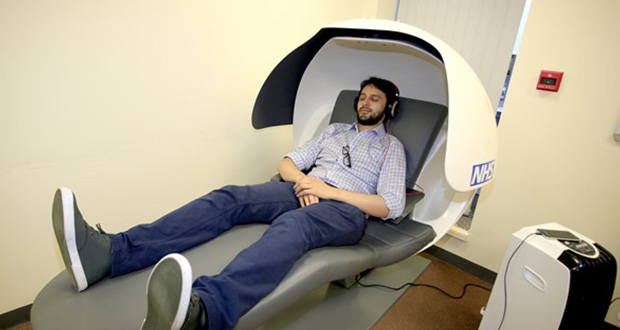Sleep pods are being installed in a number of hospitals across the NHS in the UK to help combat fatigue among health workers.
The pods were first trialled by the Royal Wolverhampton NHS trust in June 2018 and a number of other hospitals have followed suit.
Studies have shown a 3.4 per cent probability of an error when a nurse obtained fewer than six hours sleep at night. In a hospital with 1000 nursing shifts per day, this would translate to a probability of 34 errors per day.
Experts say that nurses need to ensure they get 7–8 hours of sleep a night, and that hospital policies must ensure that nurses get their breaks and are allowed to sleep during their breaks if need be.
Walsall Healthcare NHS Trust has installed the ‘Energy pods’, provided by the Metronap company, with the hopes of improving patient safety and, importantly, the safety of workers, especially outside of work hours.
Dr Esther Waterhouse, director of postgraduate medical education for Walsall Healthcare, said: “We expect our staff to provide safe and effective care to our patients and it’s just as important that we look after the health and wellbeing of these staff.
“Many junior doctors have placements in hospitals a good distance from their homes and Walsall is no exception.
"There have been cases across the country where junior doctors have died whilst driving home after a night shift; if they can have a short power nap before setting out research shows that this helps the body to refresh.
"But the pods and chairs are for all to use and we look forward to hearing staff feedback following this trial period.”
Hereford County Hospital introduced the pods as part of the national Fight Fatigue campaign, which was launched after the tragic death of a trainee anaesthetist who died while driving home tired after a night shift.
The campaign is a joint initiative of the Association of Anaesthetists, Royal College of Anaesthetists (RCoA) and the Faculty of Intensive Care Medicine (FICM). A survey by the group found that:
- nearly three-quarters of respondents reported fatigue had a negative effect on their physical health or psychological wellbeing
- 84 per cent had felt too tired to drive home safely after a night shift
- less than a third had access to a suitable rest facility, and
- 57 per cent had experienced an accident or near miss when driving home after a night shift.
Sue Smith, director of human resources at Wye Valley NHS Trust, said: “We welcome the installation of the new sleep pods, which have been funded by the NHS and form part of our staff wellbeing plans to improve working conditions and rest areas for doctors and all of our shift workers.
“We’re encouraging staff to fight fatigue by taking breaks, staying hydrated, eating well, getting extra sleep before a night shift and taking a power nap during their break when working a night shift to improve alertness.”
The pods, which cost approximately US$18,000, have proved a big hit among staff. Catherine Griffiths, director for people and culture at the Walsall Trust told the Guardian that “the feedback was overwhelmingly positive".
Do you have an idea for a story?Email [email protected]
 Aged Care Insite Australia's number one aged care news source
Aged Care Insite Australia's number one aged care news source

